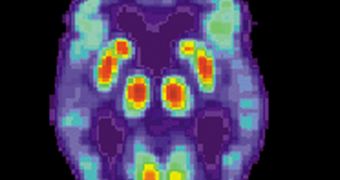People suffering from Alzheimer’s also have serious blood flow problems in the brain, and a team of scientists in Bristol might have just come up with a solution.
They have discovered some of the processes responsible for the leaky blood vessels within the brain, and their findings could turn existing drugs into potential Alzheimer’s treatments.
The team that have been working on this is part of the University of Bristol's Dementia Research Group and they had the support of the Alzheimer’s Research Trust.
They knew that in the case of Alzheimer’s, the blood vessels in the brain have a hard time adjusting to the changes in blood pressure and brain activity, so they tend to become too permeable, and allow possibly harmful substances to pass from the bloodstream into the brain.
PhD student Emma Ashby, Professor Seth Love and Dr Patrick Kehoe, carried out a new series of studies, and found marked abnormalities in the system responsible for regulating the proper functioning of the blood vessels.
“The abnormalities we have found seem to be a reaction to the initial brain damage in Alzheimer’s disease, but they are likely to worsen the damage, diverting blood flow inappropriately and causing the vessels to become leaky,” said Miss Ashby.
“Now we need studies to find out whether using drugs that target blood vessels can prevent these abnormalities and improve brain function.”
The researchers analyzed the enzyme that controls blood flow and the permeability of the blood vessels' walls, and discovered that it had an unusual high activity in the brains of people with Alzheimer’s.
Even if it is generally believed that vascular problems are not a cause of the disease, but rather a symptom, scientists still hope that the drugs that treat these symptoms could also help improve brain function.
“Although it is known that there are problems with the function of blood vessels in the brain in Alzheimer’s, this has not received as much attention as other aspects of the disease,” said Seth Love, Professor of Neuropathology at the University of Bristol.
“These findings give us hope for future research – there are already drugs available that might prove beneficial, and we should look to trial them.”
Alzheimer’s disease is the most frequent form of dementia and it affects millions worldwide, with over 4,000 people in Bristol alone.
“These are promising results that tell us much more about the links between vascular problems and Alzheimer’s disease,” added Dr Simon Ridley, Head of Research at the Alzheimer’s Research Trust.
“It is vital that we invest in more research in this area, to see whether drugs that target these symptoms could be helpful for people with dementia.”
These new findings are published in the journals Brain Research and Neurobiology of Aging.

 14 DAY TRIAL //
14 DAY TRIAL //